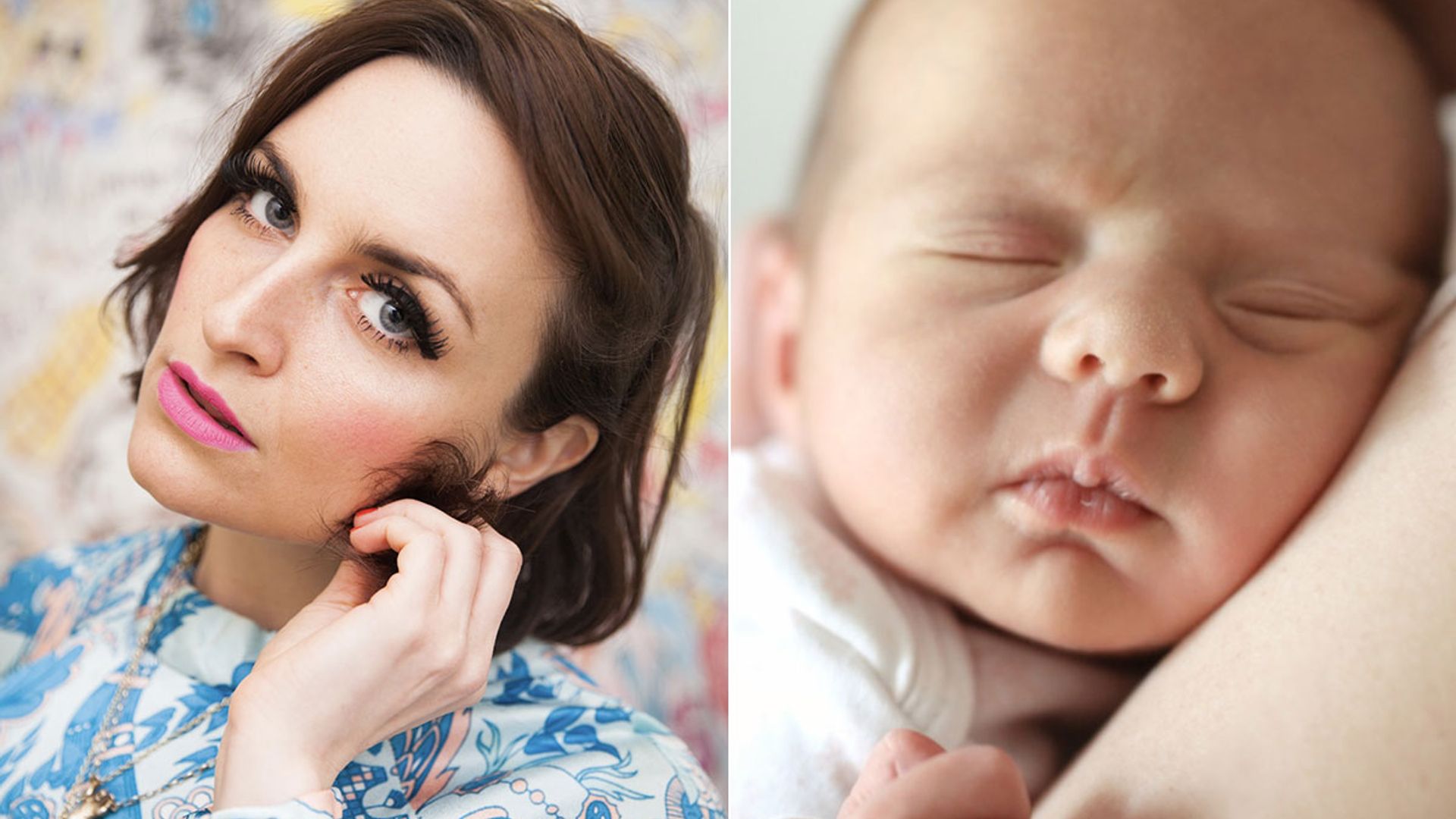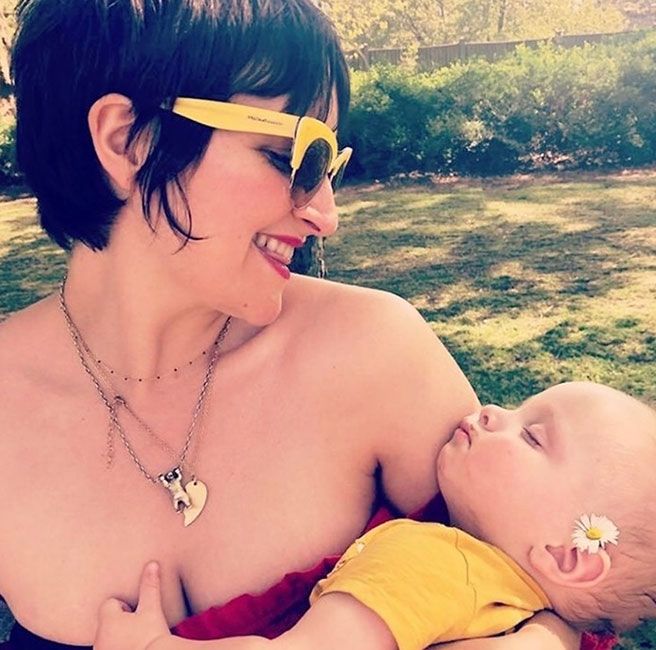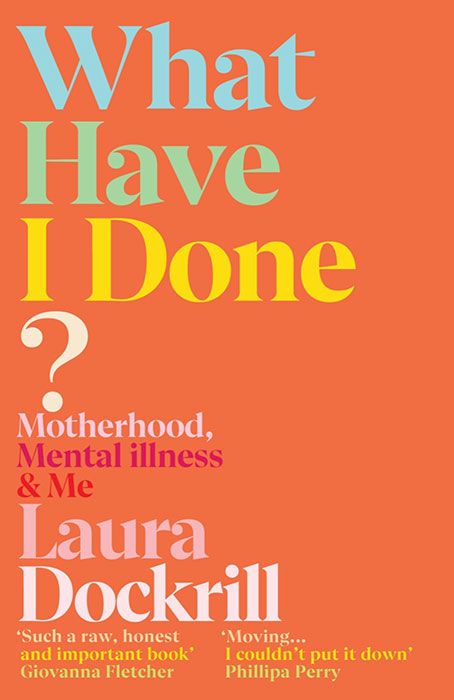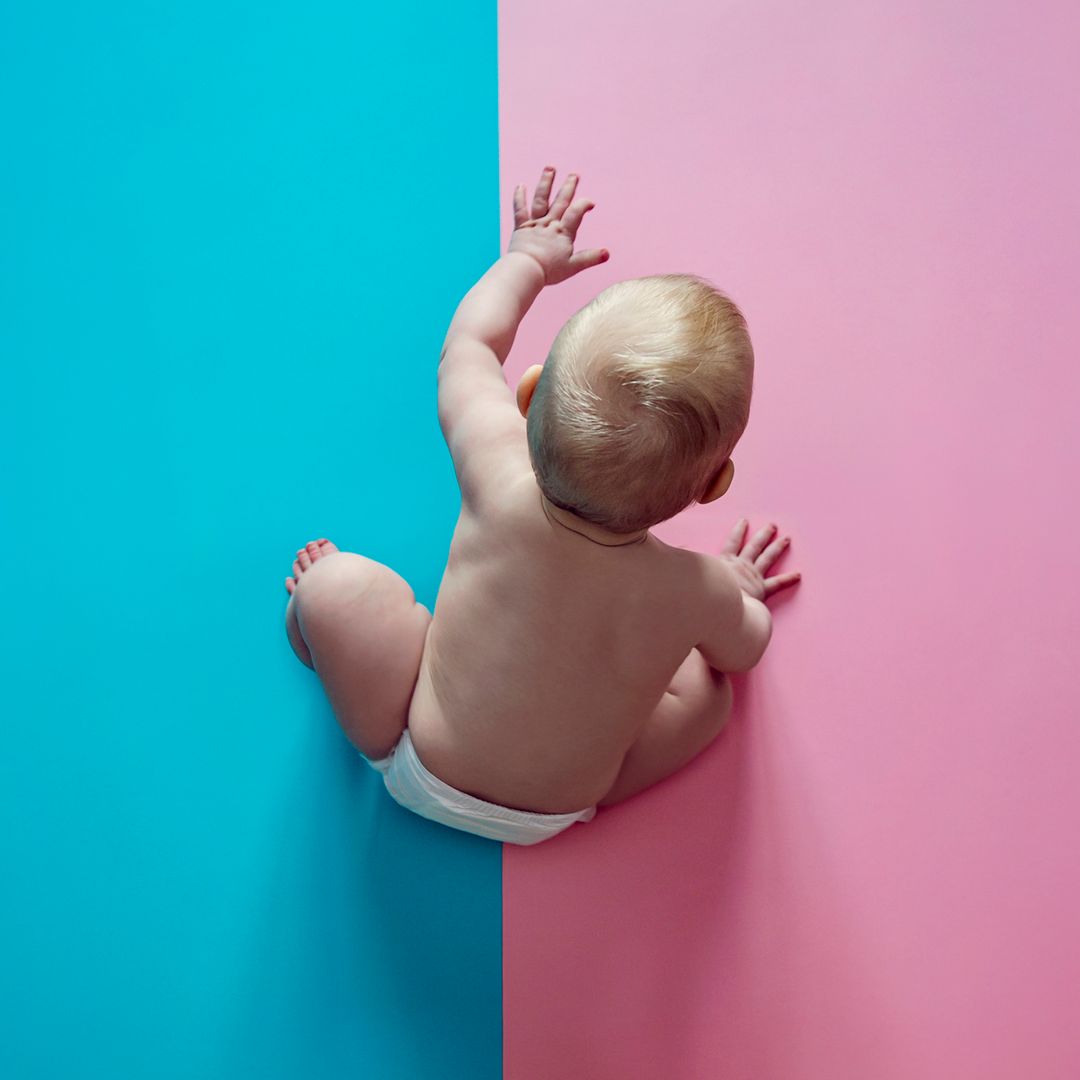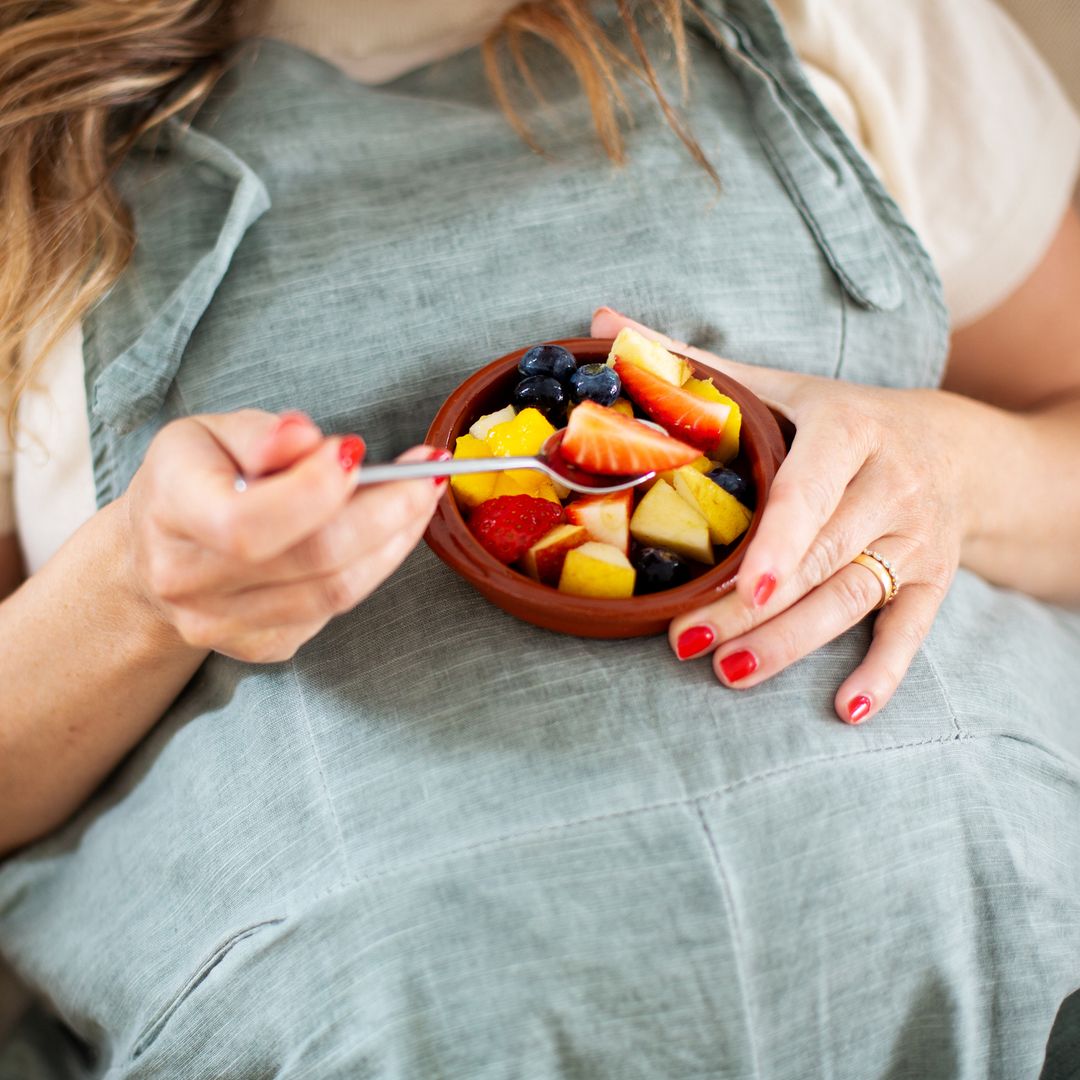Postpartum psychosis is a serious mental health illness that affects around 1400 new mums every year. This condition can leave mothers with extremely concerning symptoms - something not many of us are even aware of - unless you go through it yourself or watch a loved one suffer the traumatic experience.
Well-known writer, poet, illustrator and podcast star Laura Dockrill - who counts Adele as her childhood best friend and the godmother to her only son, Jet - is working hard to raise awareness of postpartum psychosis, the condition which she suffered first-hand.
MORE: Adele 'saved best friend Laura Dockrill's life' following postpartum psychosis diagnosis
WATCH: Adele's best friend Laura Dockrill reveals how singer was there for her
Laura, 35, was just like any first-time mum, who was looking forward to welcoming her child with husband Hugo White (formerly of The Maccabees). However, once she gave birth to Jet - who is now three - Laura's mood went from one extreme to another.
Exclusive: Andrea McLean opens up about her mental health battle
READ: How to cope if you're struggling with post-lockdown social anxiety
Recounting her harrowing experience of postpartum psychosis, Laura tells HELLO!: "On the day that I was actually hospitalised, Jet was three weeks old. And by this point, I was so unwell. I actually do use words like 'mad' - I know those words don't suit everybody but I was full-blown. I had lost it and I had no grasp of reality, and my head was a prison.
"I just had a huge range of emotions - one minute I was giving birth, the next I had all these dark thoughts."
Six months after she started to get better, Laura started a blog post - which offered help to many other mothers. This then spurred the mum-of-one to write her book on postpartum psychosis, What Have I Done?.
What is postpartum psychosis?
The illness is not to be confused with postnatal depression since postpartum psychosis is a much less common condition. Symptoms usually start within the first two weeks after giving birth - but it can happen sooner. According to the NHS website, the illness should be treated as a "medical emergency" as it can get worse rapidly and can affect the safety of the mother and baby.
Laura with her baby son Jet
Dr Jess Heron, CEO, Action on Postpartum Psychosis, told HELLO!: "Postpartum psychosis (PP) is always a medical emergency and women need to be treated as soon as possible in a Mother and Baby Unit. Women can be wrongly diagnosed with postnatal depression when they are experiencing mania or psychosis and this is why it's vital to raise awareness of what PP is and the treatments required."
She added: "It can be a tough illness to come to terms with, and we encourage anyone who has been affected to reach out for support, or join our community of other women & families making a difference for the future."
What are the symptoms and early signs of postpartum psychosis?
They can include hallucinations, confusion, racing thoughts, the inability to sleep, a manic mood and behaving out of character. Restlessness, insomnia, and irritability are said to be the earliest signs.
MORE: The top 9 wellness podcasts to nourish your mind, body and soul
READ: 14 wellness trends to try to help manage your anxiety
Can symptoms of postpartum psychosis happen before giving birth?
The simple answer is, yes. "It can start in perinatal and during pregnancy," explained Laura. "I've met women now through PP that have had the psychotic experiences during labour. I had a very, normal and healthy pregnancy. No warning, no signs that anything should go wrong."
She continued: "I've also had no history of mental illness, so there was no reason for me to think it would go the way it did."
What are some of the first things that can go through your mind?
It seems as though thoughts or beliefs that are unlikely to be true - irrational thinking - can first be a warning sign. Laura said: "First of all my labour was really chaotic and traumatic. Everything that went wrong did. Having now spoken to many more parents, this is not unusual. Some people have forceps, some people have an epidural or a caesarean - there's so many ways to give birth.
"I didn't just get unwell because of my traumatic labour, there are women that have had healthy vaginal births but have gone on to have my illness."
The author pictured with husband Hugo White
After Jet was born underweight, Laura immediately thought it was down to her. She thought her stomach was to blame for his low weight, given she thought it should have been the child's "sanctuary" for nine months.
"There were all these ideas and worries I had about me being a bad mum because I was losing blood and because he was so small and then there was the pressure of trying to breastfeed on top of that," she recalled. "I thought I would not be able to keep up with him if I was out in the wild and he wouldn't survive, he would die. I thought it would be all my fault and that I had let everybody down - my partner and his family."
Help for family and friends
Postpartum psychosis can happen 'out of the blue' to women without previous experience of mental illness, and it can definitely be traumatic for the whole family. In addition to specialist psychiatric care, the mother may need a lot of support with seemingly simple everyday decisions and tasks. In time, her confidence will grow.
Admitting she also thought social services would take Jet away from her, Laura revealed she doubted the love of her partner and friends. "My partner and I were so happy and in love when we first got together," she said of their romance.
"We've been best friends since we were 14 and it had taken us 15 years to get together. I started thinking that I had let him down as these small seeds began to come and grow into, 'I'm not the person he thought I was. All this time, I've changed. I'm not the same girl he once loved – all my friends must think that.'
READ: 8 best houseplants you need to combat stress and depression
MORE: 15 celebrities who have bravely opened up about mental health
"Fortunately, I didn't have any negative feelings towards Jet. But again, even if I did, I know that wouldn't be my own fault because it's what the illness does to you, it makes you think everything on earth is a threat to you and that you'll be better off dead."
On being hospitalised, the mum-of-one expressed: "I was so relieved when I was hospitalised. Not happy, but definitely relieved because I knew I would be safe. I was so suicidal on this particular day. People are like, 'if you have a mental illness you are weak'. There's nothing weak about it, you are psychologically weightlifting. You're trapped in a burning building.
"So I was relieved because I felt like I didn't have to pretend anymore. I didn't have to pretend to be rocking my baby. I was just desperate to escape my own head."
RELATED: 14 wellness trends to try in 2021 that will help manage your anxiety
What is the process of trying to get better?
The length of time it takes to recover from postpartum psychosis is unpredictable - every mother and case is different. "I've never said this before, but I am so thrilled that I have come back better than I actually ever thought I would," Laura said of her own experience.
"I haven't just come back, I've come back with all this wisdom and this beautiful baby boy on the other side of it. Being suicidal - it has given me this passport for life now... I'm alive and I'm here and to learn that in my 30s. I'm so grateful."
What Have I Done?, £11.65, Amazon
Can the experience put you off having another child?
Many people who've had postpartum psychosis go on to have more children. However, for Laura, she is happy to stop after Jet. "I'm never doing that again," remarked the author. "There's a 50% chance of me having the illness again. The one thing I'm grateful for is that Jet never had to see what I went through - it was kind of all done and dusted before he even understood properly."
Despite not wanting to expand her family, Laura hopes this will not stop other mothers from doing so. "I don't want to put others off because you can have all these measures put in place once you are aware of the risks," she shared. "It's the fact that we didn't even know it existed that was the biggest barrier to treatment for us. More awareness can save lives."
For more information on postpartum psychosis, please head to app-network.org.
HELLO!'s selection is editorial and independently chosen – we only feature items our editors love and approve of. HELLO! may collect a share of sales or other compensation from the links on this page. To find out more visit our FAQ page.
